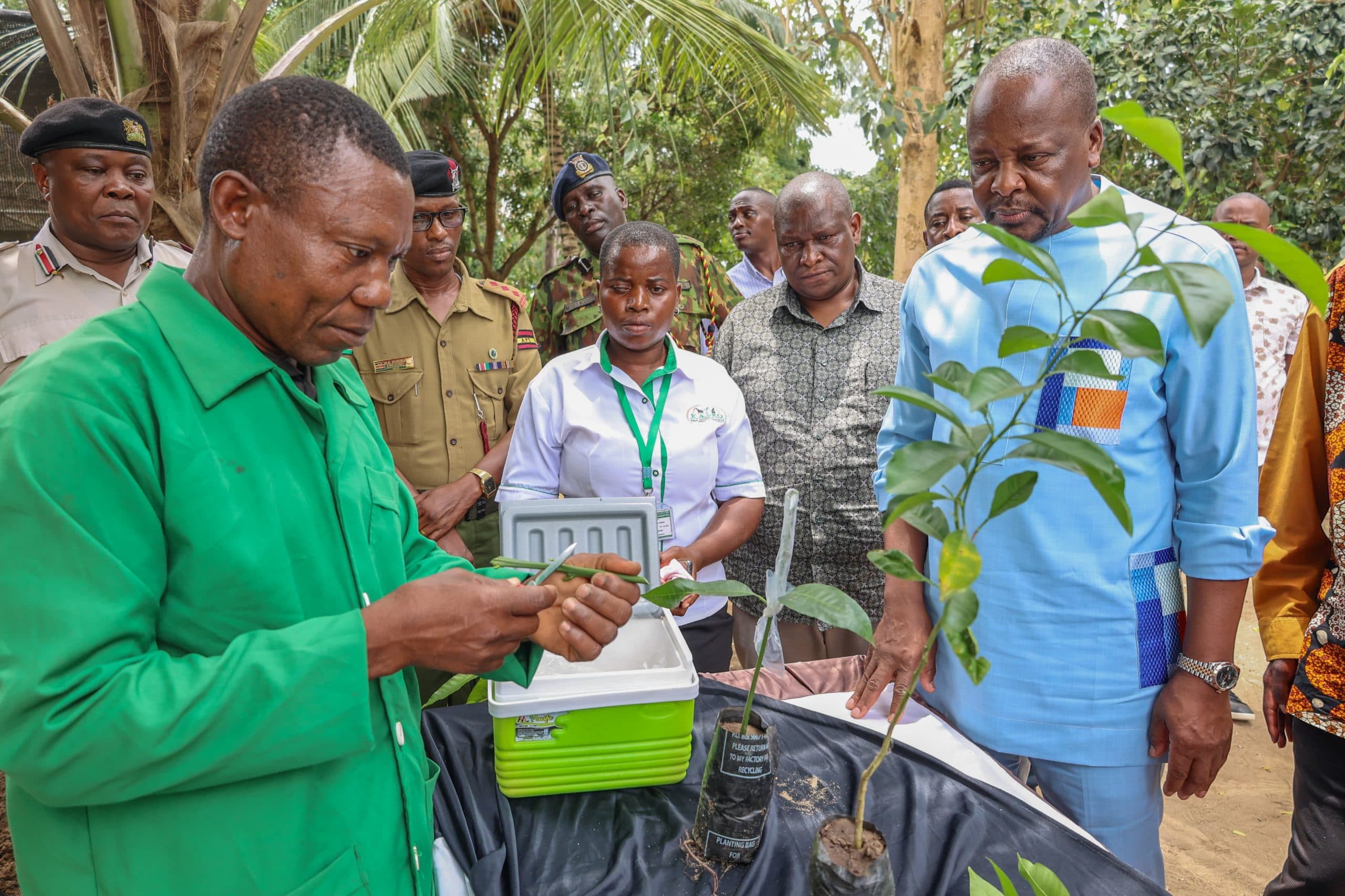We're loading the full news article for you. This includes the article content, images, author information, and related articles.
As soaring egg prices hit Kenyan households, the KNCCI proposes tax waivers and a landmark partnership with a South African agribusiness to boost local production and curb reliance on imports.

NAIROBI, KENYA – As Kenyan consumers grapple with soaring egg prices, industry leaders are proposing a mix of tax reforms and large-scale foreign investment to tackle a staggering five-billion annual egg deficit. The proposals come as a response to a deepening crisis in the poultry sector, largely driven by crippling production costs that have pushed small-scale farmers to the brink and left the nation heavily reliant on imports.
The Kenya National Chamber of Commerce and Industry (KNCCI) is spearheading a two-pronged approach to stabilize the volatile market. On Monday, October 27, 2025, KNCCI National Director Ken Onditi called on the government to create a more favorable business environment by waiving taxes on the importation of poultry feed and agricultural machinery. "Government does not do business; its role is to create an enabling environment for those who do," Onditi stated during a joint meeting in Nairobi. "Waiving taxes and offering incentives will allow investors to focus on production, value addition, and food security."
This call for fiscal reform is coupled with a major strategic partnership designed to overhaul local production. The KNCCI, in collaboration with Kenyan export facilitation firm Nouvelle Blooms Ltd, has partnered with South Africa's Truth Black Agri House Group, a consortium of investors and agricultural specialists. The partnership aims to introduce advanced, large-scale poultry farming and feed cultivation to bridge the production gap.
The primary driver behind the egg shortage and high prices is the exorbitant cost of animal feed, which accounts for up to 70% of total production costs for poultry farmers. This has made it increasingly difficult for local farmers to compete with cheaper imports from neighboring countries like Uganda and Tanzania.
Recent data from October 2025 indicates that a tray of eggs retails for between KSh 400 and KSh 500, a significant increase that has strained household budgets across the country. The crisis has been acknowledged at the highest levels of government, with Agriculture and Livestock Development Cabinet Secretary Mutahi Kagwe recently confirming the severity of the shortfall. "Kenya currently produces around four billion eggs annually against a national demand of nine billion, creating a deficit of five billion eggs that are imported each year," Kagwe stated on Saturday, October 25, 2025, during a visit to the Kenya Agricultural and Livestock Research Organisation (KALRO) in Kilifi County. He described the situation as "unsustainable" and called for a science-led approach to boost domestic production.
The new partnership with Truth Black Agri House Group is poised to be a significant step towards self-sufficiency. The consortium plans to replicate South Africa's successful poultry production model in Kenya. A key component of the deal involves providing investors with access to over 1.8 million acres of government land under the Agricultural Development Corporation (ADC) for the large-scale cultivation of essential feed ingredients like yellow maize and soya beans.
Megan Wilson, CEO of Truth Black Agri House Group, expressed confidence in the venture's potential. "The gap that exists in Kenya is one we are eager to fill so the country becomes a net exporter, not an importer, of poultry products," Wilson said. The project is expected to not only increase egg and poultry meat production but also create employment, particularly for youth and women, and facilitate technology and skills transfer across the value chain.
While the proposed investment and tax cuts are presented as long-term solutions, they are being met with a degree of apprehension from local farmers who are already struggling to survive. Small-scale poultry farmers have long lamented the impact of cheap imports on their livelihoods. The market is often flooded with eggs from neighboring countries where production costs are lower, forcing Kenyan farmers to sell at a loss.
The prospect of large-scale foreign-backed operations entering the market raises concerns about the potential for further marginalizing smallholder farmers. Furthermore, the poultry industry is also warily monitoring ongoing trade negotiations, particularly a potential deal with the United States that could open the door to finished poultry products. The Poultry Breeders Association of Kenya (PBAK) has voiced strong opposition to such a deal, warning that it could lead to the collapse of the local sector, which is unable to compete with the heavily subsidized and technologically advanced US poultry industry. The association estimates that a 75% reduction in demand for local poultry could result in annual losses of KSh 172 billion ($1.28 billion).
As the government considers the proposals from the KNCCI and its international partners, the challenge will be to balance the urgent need for increased production and price stability with the protection and empowerment of its own small-scale farmers, who form the backbone of the country's rural economy. The coming months will be critical in determining whether these solutions can hatch a sustainable future for Kenya's poultry industry or if local producers will be left scrambling for their share of the market.
Keep the conversation in one place—threads here stay linked to the story and in the forums.
Sign in to start a discussion
Start a conversation about this story and keep it linked here.
Other hot threads
E-sports and Gaming Community in Kenya
Active 9 months ago
The Role of Technology in Modern Agriculture (AgriTech)
Active 9 months ago
Popular Recreational Activities Across Counties
Active 9 months ago
Investing in Youth Sports Development Programs
Active 9 months ago
Key figures and persons of interest featured in this article